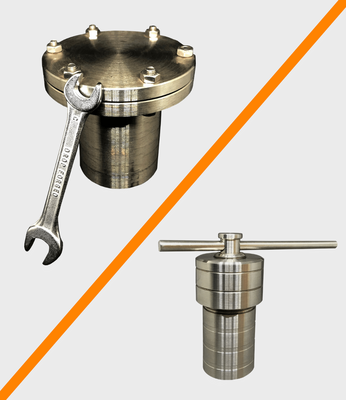
Introduction
Welcome to the definitive guide on hydrothermal autoclave reactors, where innovation meets precision. In this comprehensive exploration, we delve into the intricacies of hydrothermal autoclave reactors and how they revolutionize various industries.
Understanding Hydrothermal Autoclave Reactors
What is a Hydrothermal Autoclave Reactor?
A hydrothermal autoclave reactor is a cutting-edge device that combines heat and pressure to create an environment akin to the Earth's deep crust. This controlled environment facilitates chemical reactions, offering scientists and researchers unparalleled opportunities for experimentation. Unlike traditional methods, hydrothermal autoclave reactors allow reactions to occur at higher temperatures and pressures, opening doors to novel discoveries.
Applications Across Industries
Scientific Research and Advancements
The versatility of hydrothermal autoclave reactors shines in scientific research. From synthesizing nanoparticles to exploring novel materials, these reactors play a pivotal role in advancing our understanding of various scientific domains. The controlled conditions enable the creation of unique compounds, propelling research to new heights.
Pharmaceutical Innovations
In the pharmaceutical industry, precision is paramount. Hydrothermal autoclave reactors contribute significantly to drug development by providing a controlled environment for synthesizing complex compounds. This not only expedites the research process but also ensures the quality and efficacy of pharmaceutical products.
Green Chemistry Initiatives
As the world embraces sustainability, hydrothermal autoclave reactors emerge as champions of green chemistry. The efficient use of resources, reduced waste, and energy optimization make these reactors key players in eco-friendly manufacturing processes.
Advantages of Hydrothermal Autoclave Reactors
Precision and Control
One of the standout features of hydrothermal autoclave reactors is the unprecedented precision and control they offer. Researchers can fine-tune temperature, pressure, and other parameters, allowing for meticulous experimentation and consistent results.
Accelerated Reaction Rates
In traditional settings, certain chemical reactions may take an impractical amount of time. Hydrothermal autoclave reactors overcome this limitation by accelerating reaction rates, leading to faster experiments and more efficient processes.
Exploration of Extreme Conditions
By replicating extreme conditions found in the Earth's crust, hydrothermal autoclave reactors empower scientists to explore reactions that were once deemed impossible. This expands the horizons of scientific knowledge and opens doors to groundbreaking discoveries.
Choosing the Right Hydrothermal Autoclave Reactor
Factors to Consider
Material Compatibility: Selecting a reactor with materials compatible with the intended experiments ensures the reliability and longevity of the equipment.
Pressure and Temperature Range: Different experiments demand specific pressure and temperature conditions. Choosing a reactor with a wide range ensures versatility in research endeavors.
Safety Features: Prioritize reactors equipped with robust safety features, guaranteeing a secure working environment for researchers.
Future Prospects and Innovations
The realm of hydrothermal autoclave reactors is dynamic, with ongoing research and innovations continually pushing boundaries. Future developments may include enhanced automation, improved energy efficiency, and expanded applications in emerging scientific fields.
Conclusion
In conclusion, the hydrothermal autoclave reactor stands as a beacon of innovation in scientific research, pharmaceuticals, and green chemistry. Its precision, versatility, and ability to unlock new realms of experimentation make it an indispensable tool for researchers worldwide.
















.png)
.png)








Leave Your Comment & Rating Below
0 Comment(s)